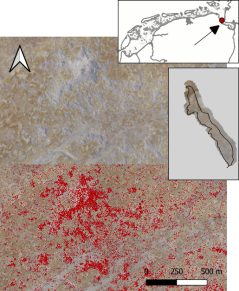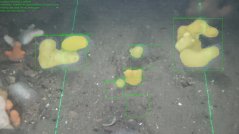
Facility
Benthos laboratory
The team of the benthos laboratory carries out sampling, analyses the samples and processes the data into reports for clients and scientific publications. We specialise in macrofauna and have a wide range of sampling equipment at our disposal.
The benthos laboratory has a great deal of experience with stock surveys, monitoring, effects studies, invasive species research, dietary studies and discard analyses.
The Wageningen Marine Research benthos team consists of a group of technical assistants, analysts and researchers, both in Den Helder and in Yerseke.
Marine macrofauna
The analysis of samples of benthic organisms (macrozoobenthos) is our main task and also our main speciality. Our specialism focuses on the taxonomy and ecology of invertebrates living in the seabed. We analyse benthic samples and other substrates from the North Sea, Wadden Sea and Delta region and determine the species composition, abundance and biomass of macrozoobenthos.
Automatic image detection

Our team is developing methods to (semi) automatically detect the presence of benthic species (both individual species and assemblages of species) on various types of imagery. Examples are video images of North Sea benthic surveys or drone images of mussel beds that have fallen dry.
First of all, fauna present on the images are identified, counted, measured or mapped. Secondly, methodological rules for detection, which are important for obtaining standardised results, are incorporated into the methodology, so that unambiguous information is obtained that meets the detection requirements. By carrying out checks and learning about new species, the methods are constantly being improved and broadened. Work is also being done on identifying abiotic properties, such as the presence of gravel, sand or silt.

Molecular identification of species
The Wageningen Marine Research benthos team is pioneering the molecular identification and quantification of species. This technique is particularly efficient in the analysis of plankton samples from, for example, ballast water or the monitoring of fish and shellfish larvae.
Ecosystems approach
The Wageningen Marine Research benthic team is connected to an environmental laboratory where physical and chemical analyses are carried out. The environmental chemistry lab has a number of biochemical determinations. This lab also has a mesocosm garden, in which risk assessments can be carried out.
Quality
The Wageningen Marine Research benthic team pays close attention to quality management. In addition to described procedures, the team is affiliated with a European ring test scheme (NMBACQ), making the taxonomic analyses comparable to those of laboratories throughout Europe. The laboratory maintains its own reference collection and stores examined samples for several years. This storage period can be extended in accordance with the client's wishes.